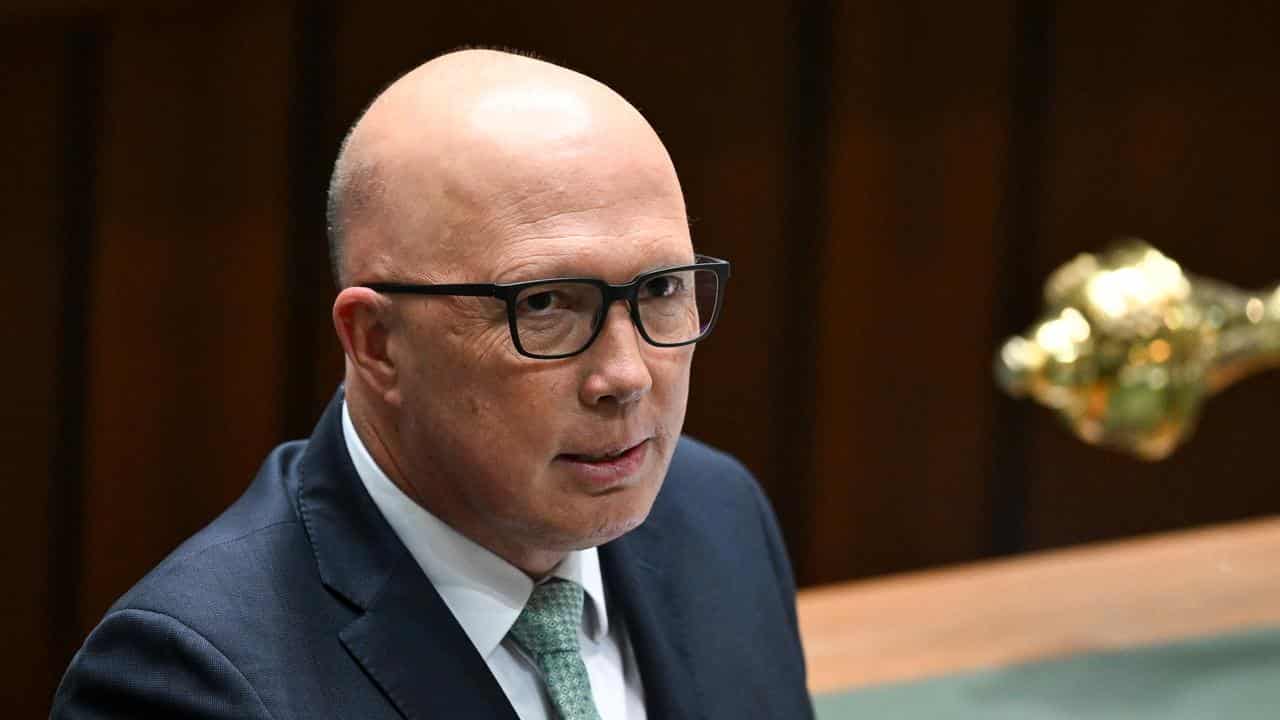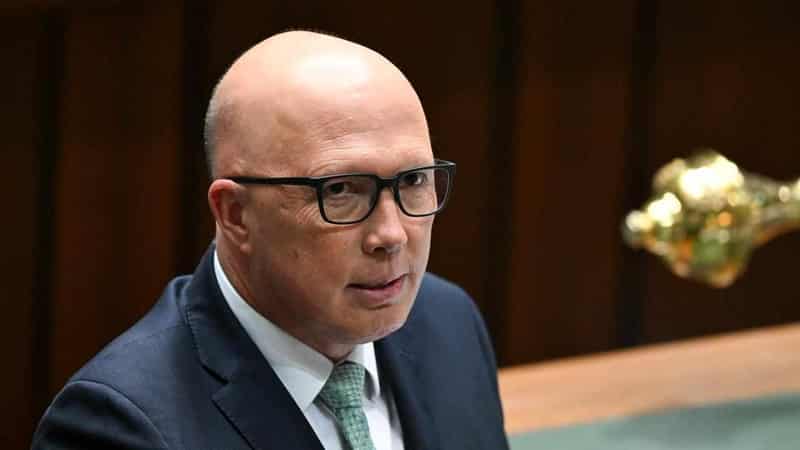
Opposition Leader Peter Dutton has backed a visit by Anthony Albanese to China before the lifting of all Beijing's trade bans and the release of detained Australians.
The prime minister has accepted an invitation to meet with Chinese President Xi Jinping in Beijing before the end of the year.
The confirmation of the trip came after Mr Albanese met Chinese Premier Li Qiang in Jakarta on Thursday, with hopes detained Australians, including journalist Cheng Lei, will soon be released.
Mr Dutton said it was appropriate for Mr Albanese to go so he could raise a "list of issues".
"He obviously believes that he can get some way in relation to the relief around the tariffs that have been imposed," Mr Dutton told ABC radio on Friday.
"Human rights issues obviously remain paramount, particularly in relation to Australian citizens.
Mr Dutton said he expected there would be sensitive security issues Mr Albanese wanted to discuss.
"China is an incredibly important trading partner for us, and we want peace and stability to endure in our region," the opposition leader said.
"I'm sure that will be the basis of the conversation."
Previously, the coalition suggested the prime minister shouldn't visit Australia's largest trading partner until the outstanding issues had been resolved.
Australian Strategic Policy Institute deputy director of strategic policy Alex Bristow said Mr Albanese should travel to China regardless of whether issues in the relationship have been resolved.
"Dialogue should take place without preconditions," Dr Bristow said.
"It's quite dangerous to make it too obvious that diplomatic visits are required to make progress on bilateral issues, it gives leverage to the Chinese and could incentivise pressure against Australia that can subsequently be bartered at top-level negotiations."
Dr Bristow said the prime minister needed to continue to raise Australia's concerns about Beijing's conduct and should avoid making concessions like suspending Australia's action in the World Trade Organisation against Chinese wine tariffs.
He said Mr Albanese's delegation should reflect the political nature of the visit.
"Despite the timing around the anniversary of (former prime minister Gough) Whitlam's visit, this isn't the time for friendly photoshops at cultural sites that give the impression of a reset," Dr Bristow said.
Deputy Prime Minister Richard Marles said Mr Albanese's visit was important to national security and the stabilisation of the relationship with Beijing.
"What we have sought to do without making any concessions to China, is to stabilise the relationship which now has seen trade come back on board," he told reporters.
Agriculture Minister Murray Watt said the government didn't undertake these trips on a "transactional basis" but was hopeful the prime minister's meetings would result in the lifting of trade sanctions.
Mr Albanese on Thursday said he had raised with Mr Li the issue of Australians being imprisoned in China, and the remaining trade sanctions imposed on the nation's exports by Beijing.









